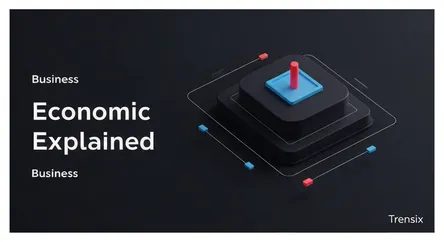Business
Economic Moats Explained

Discover what an economic moat is—a company's durable competitive advantage that protects long-term profits. Learn why it's a key concept for investors.
What is it?
An economic moat, a term popularized by investor Warren Buffett, is a company's sustainable competitive advantage that protects its long-term profits and market share. Think of it as a defensive barrier around a business 'castle'. This moat can be created by factors like strong brand identity (Coca-Cola), patents (pharmaceuticals), network effects where a service's value grows with users (social media), or significant cost advantages that are difficult for competitors to replicate. It's the key to a company's long-term success and durability.
Why is it trending?
In uncertain economic times, investors seek stability. The economic moat concept is trending because it helps identify high-quality companies built to last. Businesses with wide moats are better positioned to weather downturns, fend off competition, and maintain pricing power. As market volatility persists, the search for durable, predictable businesses over speculative growth stocks has brought this fundamental value investing principle into focus. It’s a timeless strategy for finding resilient investments.
How does it affect people?
For investors, identifying companies with wide moats is a strategy for building a stable portfolio and achieving long-term growth. For consumers, it can mean consistent product quality from trusted brands, though it may also lead to less competition and higher prices. For employees, working at a company with a durable competitive advantage often translates into greater job security, as the business is less susceptible to sudden market shocks or competitive threats.